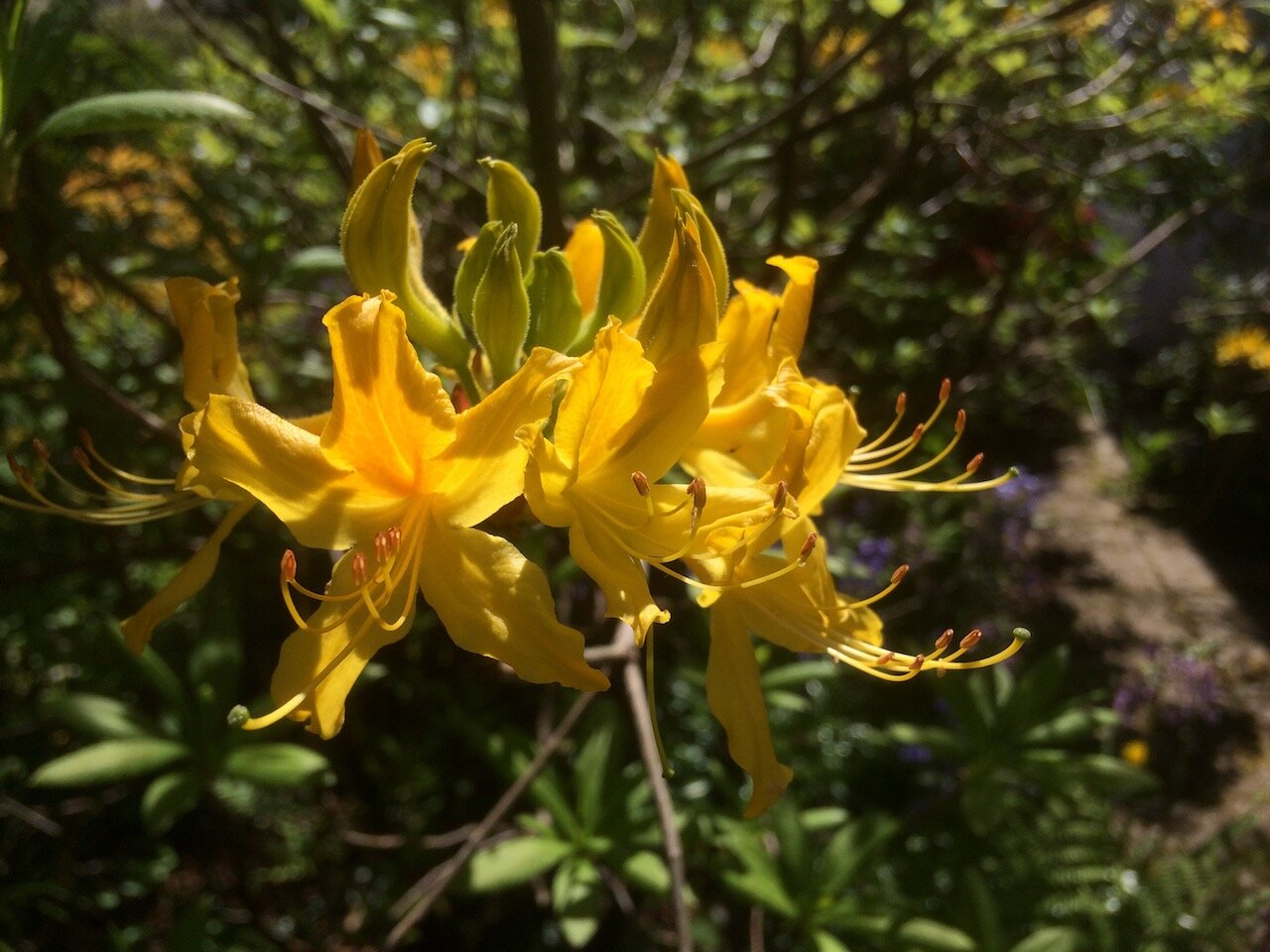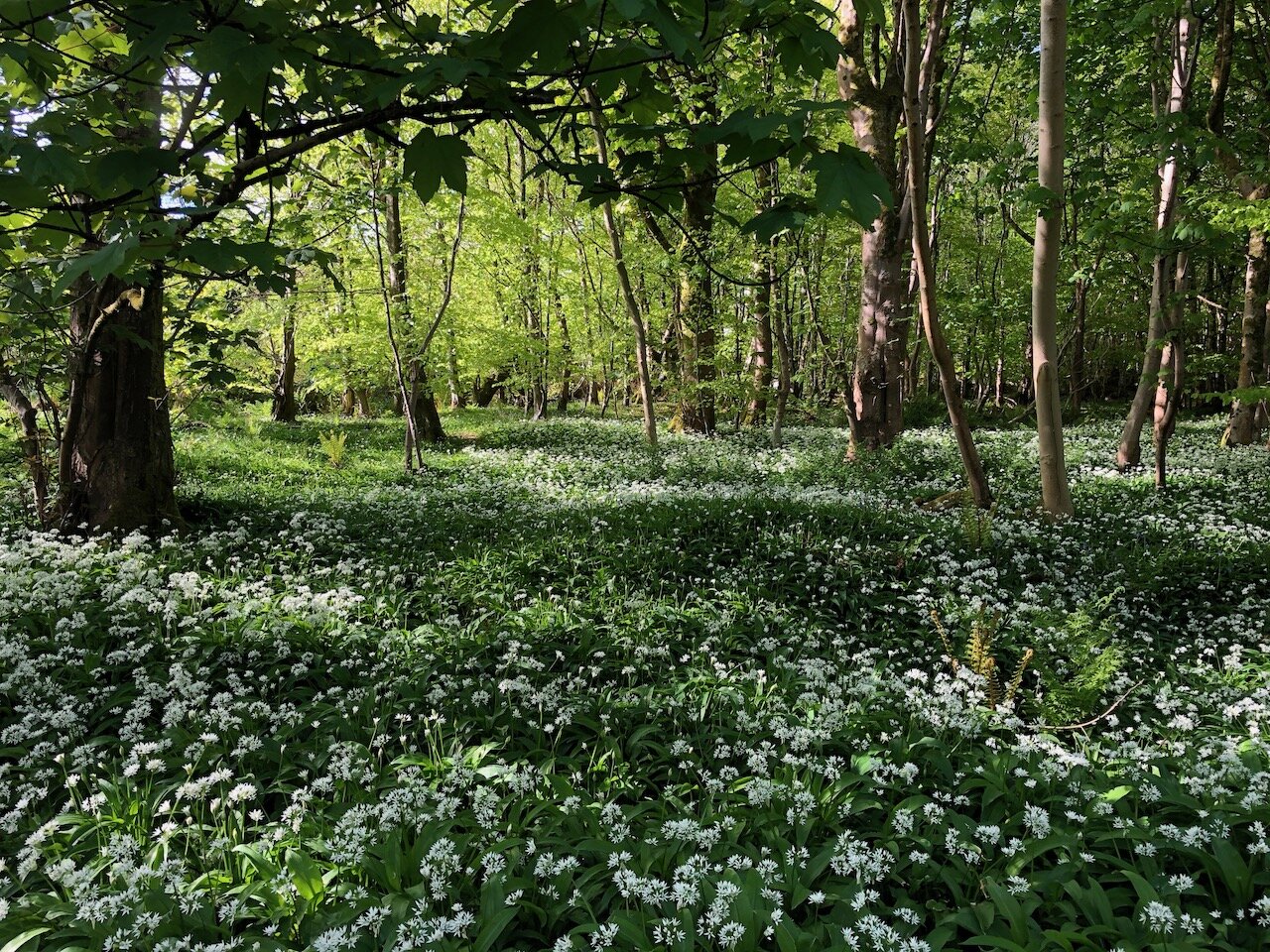Stimulate your senses for better health and emotional well-being
For me, it’s not just the sights and sounds in nature that offer me solace from everyday stresses, but also the smells around me too.
Getting my hands (and feet) in the soil whilst hearing the birds and bees singing and buzzing; the grasses and tree-leaves swaying in the breeze and seeing the beautiful colours, shapes and textures of the myriad plants in my garden bring a smile to my face and to my heart.
This is not surprising if we consider that people have evolved with plants and we tend to have positive psychological and physiological responses to them.
Many studies show that passive or active involvement with nature such as through gardening or viewing a natural setting can have a positive impact on physical and mental health. This is corroborated by the thousands of people who actively take part in therapeutic horticultural projects - such as The Restart Project* in Glasgow and others all around Scotland coordinated by Trellis** - and home gardeners alike.
One of the therapeutic community gardens that is part of the Trellis network.
Scent too can play a big role in this improved health and emotional well-being. I feel an uplifting sense when I am stopped in my tracks by a powerful scent and generally feel relaxed when sitting among plants - whether in my garden or a park or enveloped by them in a woodland.
The gorgeous scent of Rhododendron luteum planted by the front door stops me in my tracks every time I pass by.
Sense of smell is linked to the limbic system of the brain - a primitive area - and the area that is responsible for instinct; it drives behaviour, memory and emotions. Inhaling rose oil vapour has positive effects on brain activity and has been shown to have anti-depressive qualities and a calming influence, helping to reduce fatigue, stress and exhaustion (Mohebitabar et al., 2017). Positive psychological and physiological effects have also been measured in people inhaling floral scent naturally diffused from flowers (Jo et al., 2013).
Given that scent is linked to memory, combining scent with a positive experience, such as gardening, could have an even more powerful effect, especially if it happens again and again. The memory of that event can even be recalled by that same scent at another time, providing longer lasting effects of the positive experience.
SUMMARY
Gentle moving whilst being stimulated visually and non-visually through the sound, taste, touch and scent of plants and the natural environment is good for us physically and mentally. The longer we can spend in a plant-filled environment, especially one that stimulates all our senses, including our sense of smell, the better our health and emotional well-being will be.
So what are you waiting for - get out in your garden, into a local park or woodland and experience plants and nature on all its levels.
More information
* The Restart Project is an NHS Greater Glasgow and Clyde therapeutic gardening project concerned with Mental Health Recovery in Glasgow. For more information, see The Restart Project https://www.nhsggc.org.uk/your-health/health-services/restart-project/
** We are working in association with TRELLIS, which is the hub of a network of over 420 therapeutic gardening projects throughout Scotland that use gardening to enable thousands of people facing multiple disadvantages to improve their health and well-being. Trellis endorse the general benefits to health of gardening. For more information, see https://www.trellisscotland.org.uk
References:
Mohebitabar et al. 2017. Therapeautic efficacy of rose oil: A comprehensive review of clinical evidence. Avicenna J. Phytomed. Vol. 7 (3): 206-213.
Jo et al. 2013. Physiological and Psychological Response to Floral Scent. HortScience Vol. 48 (1): 82-88





